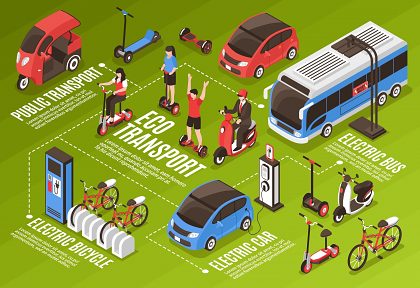
From the 8th to the 9th of February, the first meeting of the new EIONET Mobility Systems group took place at the EEA headquarters in Copenhagen, attended by our colleague Ján Horváth. During the two day meeting, several interesting presentations were given on various topics, such as new technologies for maritime transport, regional models for emission reduction through non-motorized transport, and the impact of remote work on transportation emissions. From our perspective, presentations on the social and environmental aspects of remote work and the modeling of active (non-motorized) transportation in Finland were particularly interesting.
Martina Bisello from EUROFOUND (European Foundation for the Improvement of Living and Working Conditions) presented on the social and environmental aspects of remote work. According to the results of their research in 2022, 22% of people in the entire EU worked at least partially from home, a significant increase from 11% in 2019. Regular and long-term remote work accounted for 12.3% of people, representing a 9% increase from 2019. People working from home tend to move further away from the city, often reducing commuting frequency and changing commuting methods. Up to 37% of jobs in the EU can be done remotely. Remote work leads to more non-essential trips, such as shopping or increased car use by multiple household members. The reduced positive impact on emissions is also due to increased energy consumption in households. Regarding the workplace (mostly offices), the energy savings are questionable and depend on whether it remains open every day or only on certain days. Nevertheless, it was found in Ireland that remote work still has a more positive impact on emission reduction than daily commuting.
Emilia Suomalainen provided information on the results of modeling active transportation methods in Finland. The project focused on using cycling as a means to significantly reduce transportation emissions. Using the English model www.pct.bike, adjusted for Finnish needs, they modeled cycling in Oulu in northern Finland. The main adjustments to the model included seasonality, air temperature, snow cover, and gradient (elevation). The model is built on regional differences and needs to be set up separately for each region under observation. Scientists found that children have no problem making longer trips to school, but for adults, the distance they are willing to travel by bicycle is significantly shortened. Finland is working on a measure aiming to shift 30% of commuting to school/work to bicycles.
Meetings within the EIONET network help advance the boundaries of knowledge collectively and thereby enhance the work of the Emissions and Biofuels Department.

